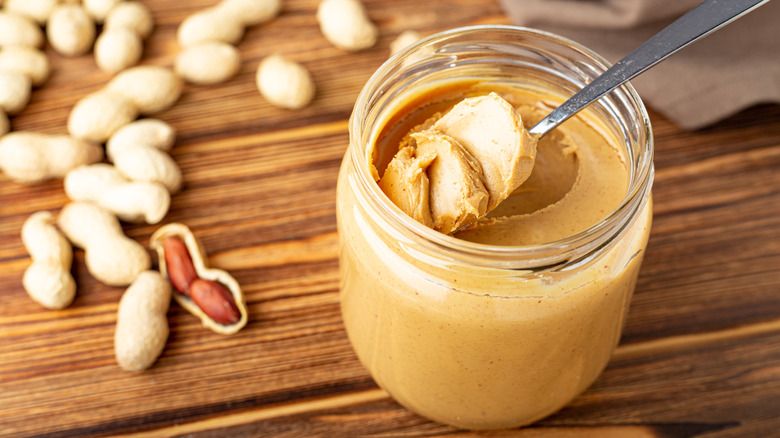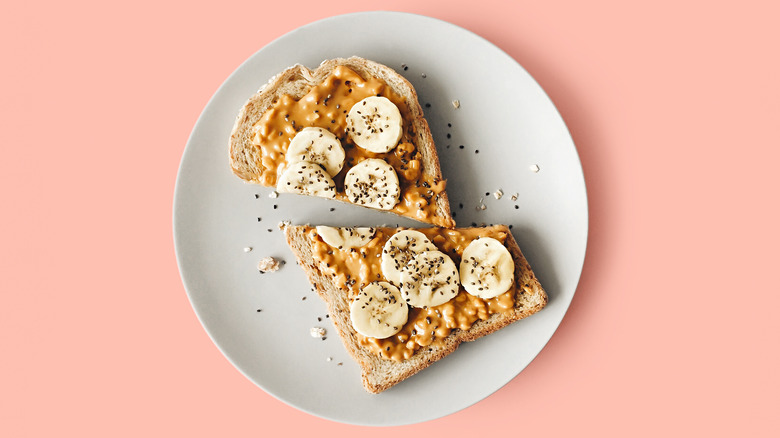When You Eat Too Much Peanut Butter, This Is What Happens
Peanut butter is a beloved addition to many meals. Whether on toast, in a smoothie, or packed into your favorite Halloween candy, peanut butter can serve as a healthy and tasty complement to a variety of snacks. Although there are many positive health benefits associated with peanut butter, there are also some lesser known potential health risks of consuming more than the recommended amount.
While packed with protein, healthy fats, and a wide range of vitamins and minerals, peanut butter can also contain high levels of sugar and other additives (via Healthline). Ingesting high amounts of these additives can result in certain conditions such as hypertension (via Eat This, Not That!). Hypertension, otherwise known as high blood pressure, is defined by Mayo Clinic health experts as, "a common condition in which the long-term force of the blood against your artery walls is high enough that it may eventually cause health problems, such as heart disease." To avoid these additives, nutrition specialists advise selecting a natural peanut butter where no hydrogenated oils are seen listed on the ingredients. To help recognize a natural peanut butter, experts say you'll want to look for a separated peanut butter mixture versus one where no stirring is required.
Overconsumption of peanut butter can have physical and neurological side effects
Additionally, eating large amounts of peanut butter has been linked to the development of acid reflux (via Eat This, Not That!). While sometimes experienced as just a slight irritation accompanied by a burp, experts at Medical News Today explain, "Acid reflux is a common condition that features a burning pain, known as heartburn, in the lower chest area. It happens when stomach acid flows back up into the food pipe. Gastroesophageal reflux disease (GERD) is diagnosed when acid reflux occurs more than twice a week." Because peanut butter can be high in fat, to reduce the chances of developing acid reflux and possible esophagus damage, experts advise consuming portions in moderation.
In rare cases, depending on the type of peanuts used, a potentially harmful fungus can make its way into the peanut butter. Otherwise known as aflatoxin, this contaminant can be found on certain farm crops and therefore, the risk is higher when consuming handmade peanut butter that may not have been properly processed. If ingested, this can potentially lead to a number of neurological disorders such as ADHD or depression.
In order to prevent overconsumption, dietitians suggest sticking to about one or two tablespoons of peanut butter maximum daily. Another method for regulating portions is to couple it with another food item such as fruit. This way, mixing the two will help keep you feeling fuller longer so you're not tempted to fill up solely on peanut butter.


